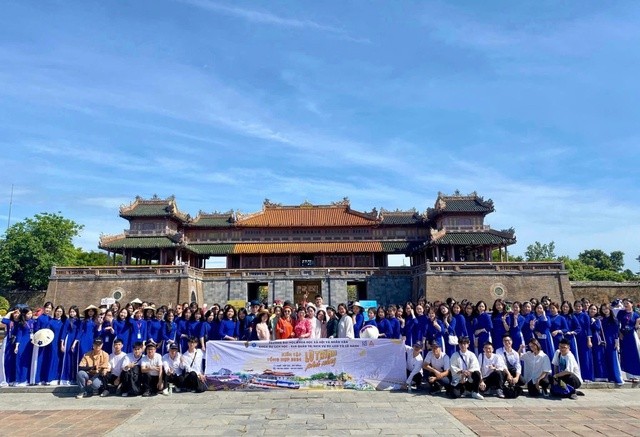
In a volatile labor market, choosing the right training environment, where the program is linked to practice, connected to businesses and focuses on vocational skills, is the first competitive advantage that helps students create a solid foundation for a career in the smokeless industry.
According to Dr. Nguyen Ngoc Dung, Head of the Faculty of Tourism Studies, University of Social Sciences and Humanities, Vietnam National University, Hanoi (VNU), in recent years, the Party and State have paid special attention to developing the tourism industry as a key economic sector. However, the human resources serving this industry are still not meeting actual needs.
"According to statistics from the Ministry of Culture, Sports and Tourism, the currently well-trained workforce only meets about 50% of the industry's needs, even when including the group of intermediate graduates," said Dr. Nguyen Ngoc Dung.
In fact, at the Faculty of Tourism Studies, about 90% of students have jobs in their major after graduation. Many students have been recruited by domestic and foreign enterprises while still studying thanks to the practical training program, linked to the needs of the labor market and the digital transformation trend in the tourism industry.
The tourism industry is no longer associated with the image of "just being a tour guide" or "traveling a lot, knowing a lot". This is a comprehensive economic sector, requiring interdisciplinary knowledge, creativity, technological thinking and modern management capacity.
In Hanoi, two universities are highly regarded for both their training reputation and output quality: the University of Social Sciences and Humanities, VNU and Hanoi Open University. Each has its own strengths, but they share one thing in common: systematic training, a practical learning model, and connections with businesses.
Data from the past 3 years shows that the benchmark score for Tourism and Travel Services Management has always remained high, especially the C00 combination reaching 28.58 points in 2024.
| Year | D01 | A01 | C00 | D78 |
| 2022 | 25.8 | 25.25 | - | 26.1 |
| 2023 | 26 | 25.5 | - | 26.4 |
| 2024 | 25.99 | 25.61 | 28.58 | 26.74 |
The Hotel Management industry also has an increased admission score, stable at 25.71 - 28.26 points (depending on the admission combination).
| Year | D01 | A01 | C00 | D78 |
| 2022 | 25.15 | 24.75 | - | 25.25 |
| 2023 | 25.5 | 25 | - | 25.5 |
| 2024 | 25.71 | 25.46 | 28.26 | 26.38 |
This score partly shows the strong attraction of the major to young people, and also reflects the shift in social awareness about the role and opportunities of the tourism industry. However, according to experts, choosing a major based on the standard score is not enough. Candidates need to base on their personal capacity, career orientation and training quality of each institution.

Dr. Nguyen Thi Thu Mai, Head of the Faculty of Tourism, Hanoi Open University, said that the core issue today is not the number of students, but the quality of training and the level of integration readiness of students upon graduation.
"Reality shows that many students have degrees but limited vocational skills, low ability to adapt to technology, and weak communication in a multicultural environment. The main reason is that the training programs in many places are still heavy on theory and lack practical experience," Dr. Thu Mai analyzed.
Based on that reality, Hanoi Open University has implemented a co-creation training model, in which businesses directly participate in the process of building the curriculum, lecturers are updated with professional requirements from business reality, students practice and intern at accommodation establishments, travel businesses and tourist destinations right from the first year.
This is a highly innovative training model, suitable for the requirements of building high-quality human resources, contributing to narrowing the gap between training and labor practice, aiming at the goal of developing Vietnam's tourism industry in a professional and sustainable direction.
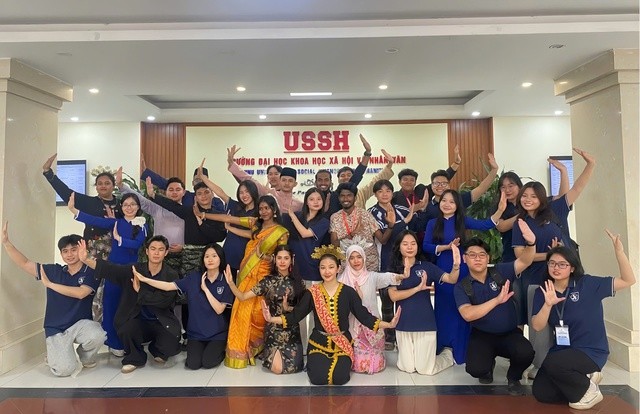
The Tourism and Travel industry helps students work in government agencies or businesses in positions such as tour operations, marketing, and event organization. Opportunities expand to smart tourism, data analysis, policy planning, and international projects. The Hospitality Management industry allows students to work in hotels, resorts, and international accommodation chains or start a business with homestays and community tourism.
A reality that needs to be taken seriously: Hanoi is a major tourist center, where fierce competitive pressure comes not only from the domestic market but also from global standards. According to the Hanoi Department of Tourism, in the first 5 months of 2025 alone, the city welcomed about 12.77 million visitors, an increase of nearly 11% over the same period last year. Notably, the number of international visitors reached more than 3.16 million, a sharp increase of 20.2%, demonstrating Hanoi's growing role on the regional tourism map.
Total revenue from tourists is estimated at 51.94 trillion VND, of which revenue from international visitors alone contributes 10.54 trillion VND, up 19% over the same period in 2024. This is not only an impressive figure, but also a clear indicator of the vibrancy and harshness of this market.
Currently, the whole city has 9,594 tour guides, more than 2,600 travel agencies, and hundreds of tourism transportation companies. Professional competition is inevitable.
Tourism is a field that operates according to the logic of "market first - people later", requiring professionals to not only have expertise but also have psychological endurance and high adaptability. Students in this field need to be mentally prepared to work in a multicultural environment, travel frequently, adapt flexibly, master foreign languages, apply technology, and especially have communication skills to handle situations, negotiate, and listen at a professional level. Working hours are not fixed, customer expectations are always high, and the line between a "memorable experience" and a "media crisis" is sometimes just a small mistake.
However, this is also an industry with competitive income and high self-employment potential. Students can start a business from their own learning: opening a homestay, developing digital tourism products, operating tours, organizing events or working in an international environment with good salaries and sustainable development potential.
In the Vietnam Tourism Development Strategy to 2030, with a vision to 2045, high-quality human resources are identified as one of the three key "pillars". And for students, choosing Tourism is not simply choosing a ticket to university, but choosing to become a companion on the journey to bring Vietnam to the world and bring the world to Vietnam.
Source: https://baolaocai.vn/chon-nganh-du-lich-giua-rung-nguyen-vong-o-thu-do-co-hoi-lon-nhung-dung-chon-theo-phong-trao-post648503.html






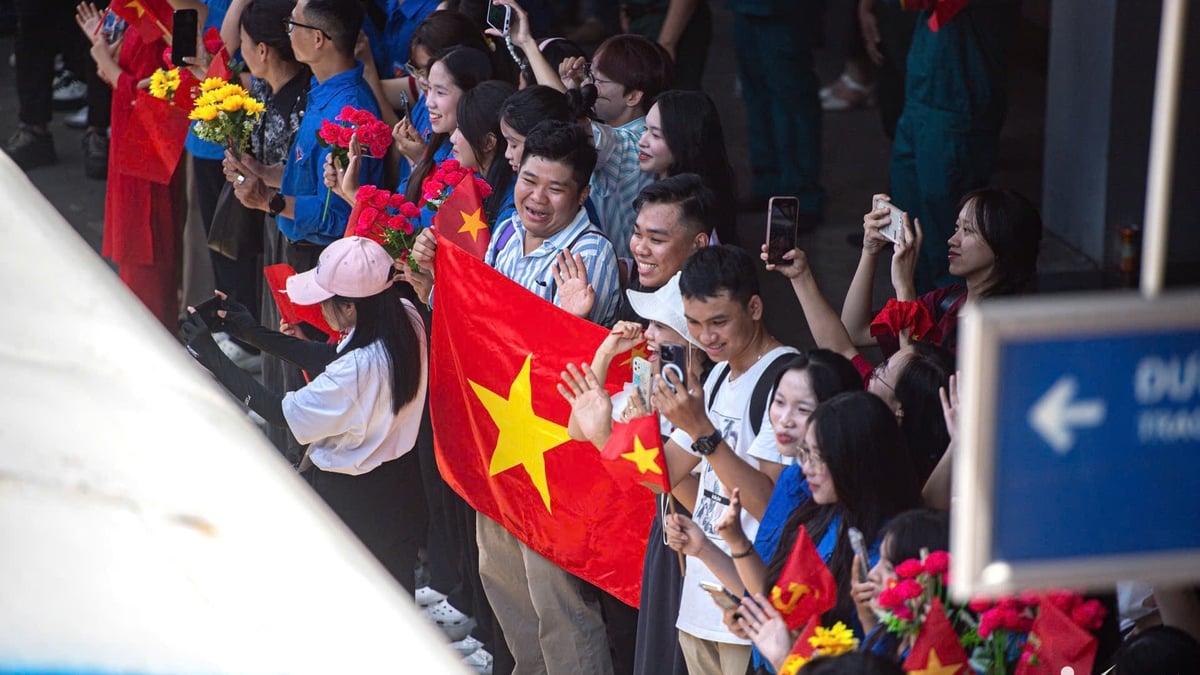

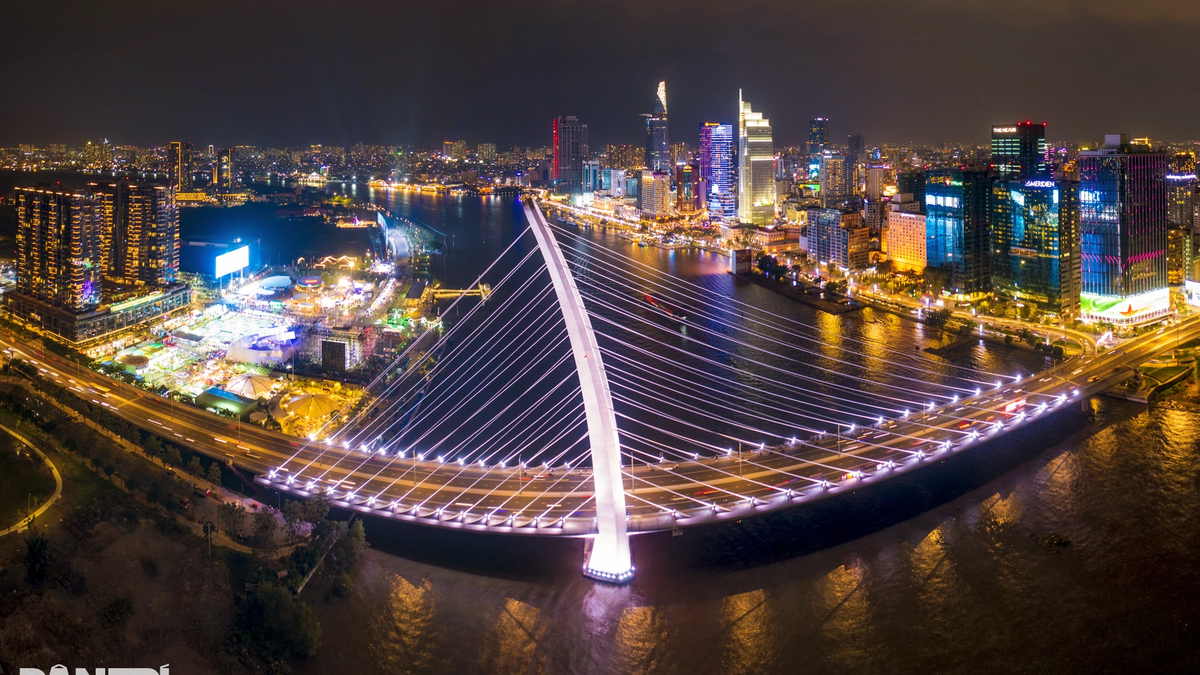
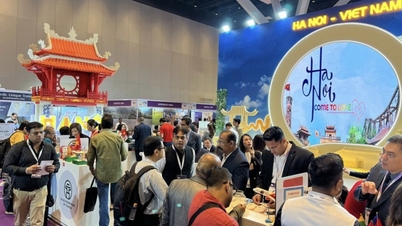





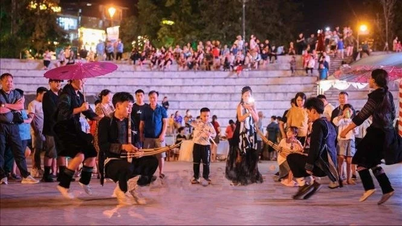
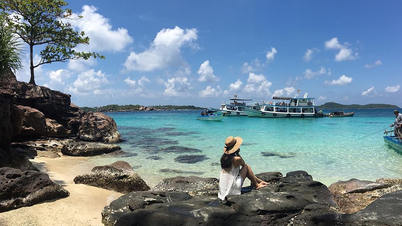


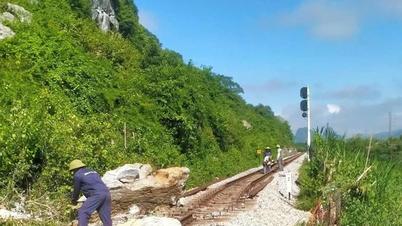

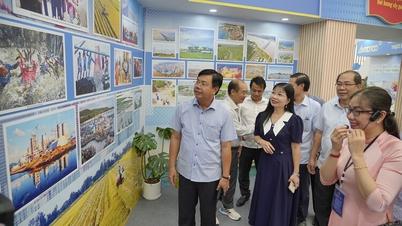












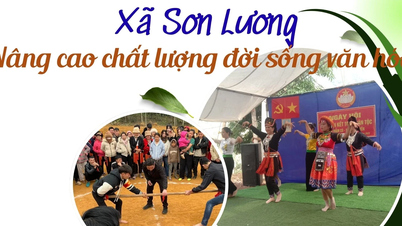

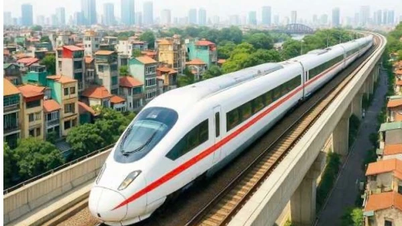
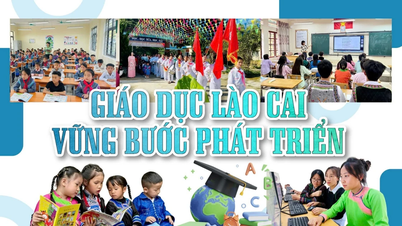

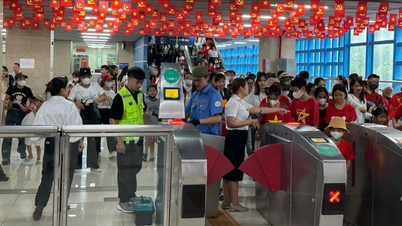

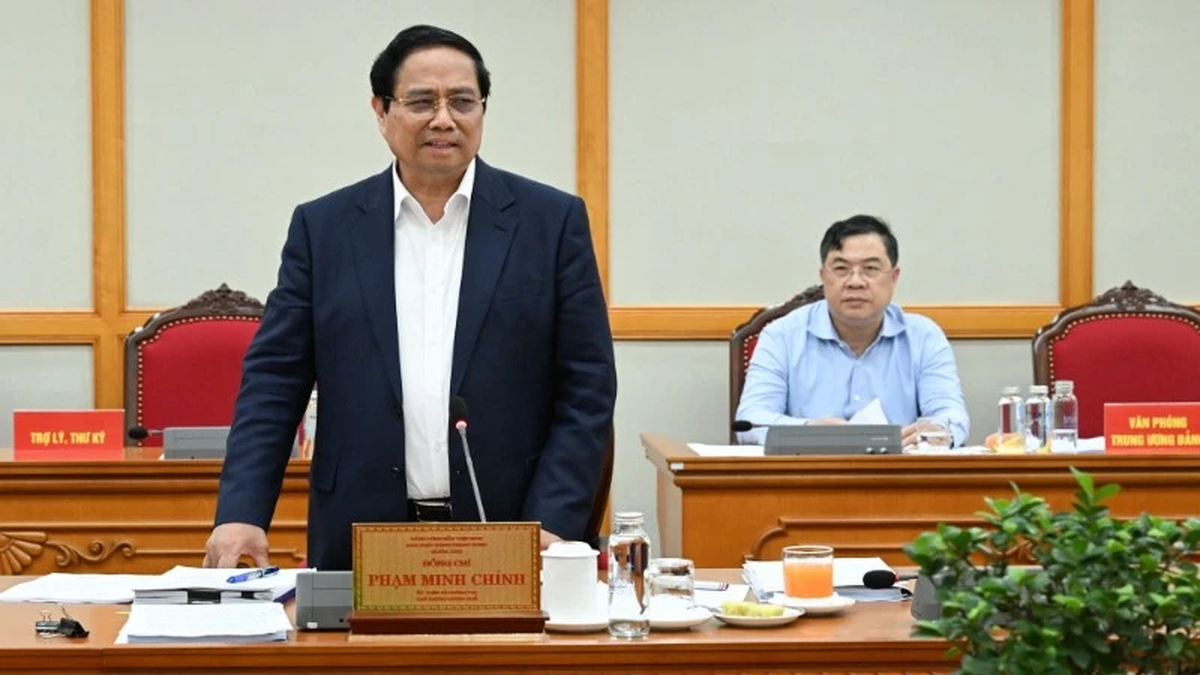



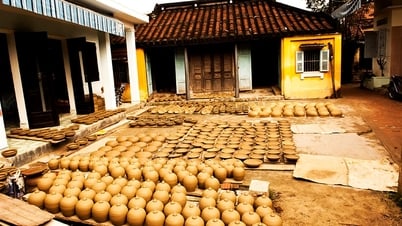



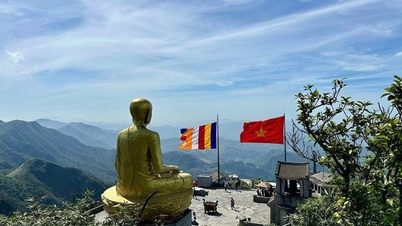










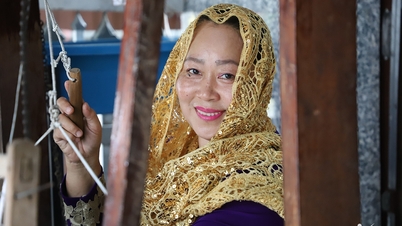








![[VIDEO] Propaganda and promotion of the use of E10 RON95 gasoline products in Quang Ngai | QNgTV](https://vphoto.vietnam.vn/thumb/402x226/vietnam/resource/IMAGE/2025/9/4/eeb7f42edd2745a482b4e5fd2f10e9b2)


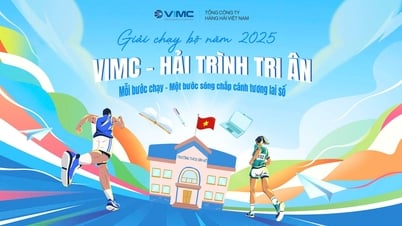




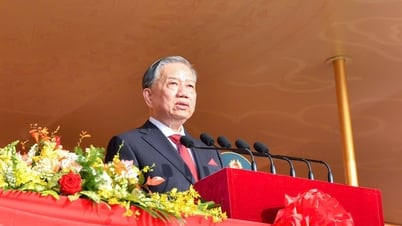
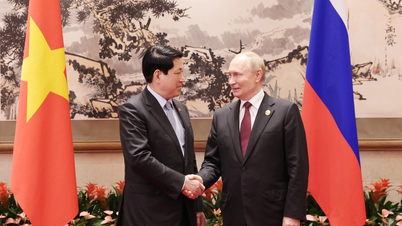





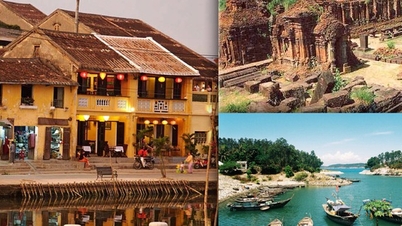

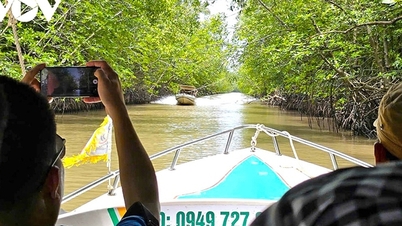
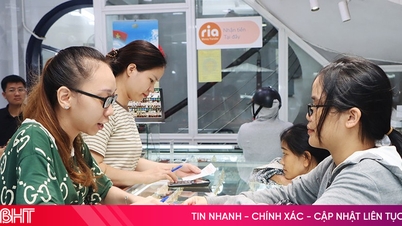











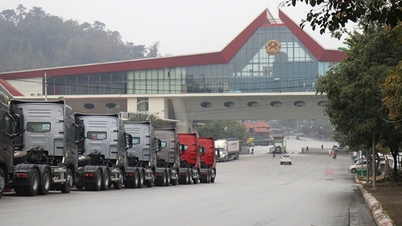









Comment (0)